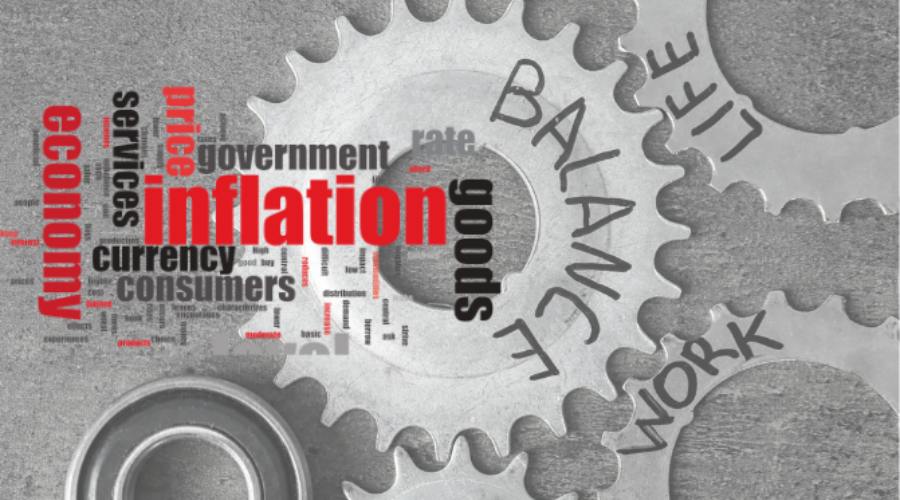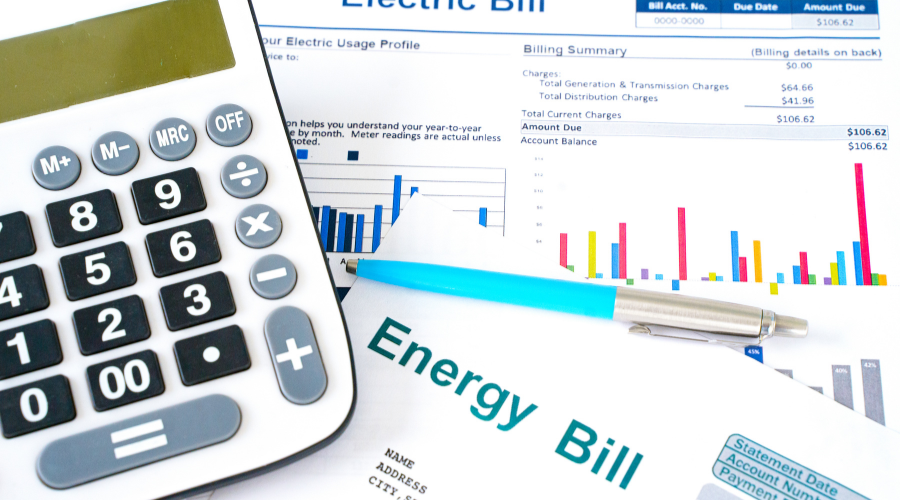
As inflation increases, people have less money to spend on bills and food. Depending on your circumstance, it might mean choosing between putting food on the table and obtaining life-saving prescriptions or paying the mortgage and having electricity.
Most realize that they need to cut back, but in some cases, it seems impossible to cut back anymore. And, although politicians, regardless of who is in office, always say that inflation is going to be short-lived, those who have lived through high-inflation periods before know better.

What is Inflation?
In short, inflation is the devaluation of the dollar. Your purchasing power decreases as prices increase. Inflation measures the overall impact of price changes for goods and services over time. We always have some inflation – usually around 1 to 2 percent. Most people do not notice low inflation as it happens over a year.
However, when prices rise significantly during a short period of time – over months or even a year – it is very noticeable. You might notice the groceries you buy in a week increased significantly over the past two to three months.
As measured by the Consumer Price Index (CPI), inflation increased by 7.5 percent from January 2021 through January 2022. This is the largest increase in inflation since the period encompassing June 1981 through June 1982.
Since the dollar loses value, you can't buy as much with it. Thus, the cost of living for your family increases, which leads to stagnant economic growth.
The biggest cause of inflation is spending too much money. As the government prints and borrows money, the value of the dollar decreases. Congressional spending means that the United States has to borrow or print money. Every trillion-dollar bill passed by Congress only serves to increase inflation.

How Inflation Affects the Average Person
Those who are rich notice the inflation, but it doesn't have as big an impact on them. However, inflation significantly affects those who are middle class, on Social Security or Disability, small businesses that do not make hundreds of thousands each month, and the self-employed.
A self-employed person or small business might raise prices, but the problem is that no one wants to pay the higher prices – or can't. Thus, these businesses start losing customers, and the small business or self-employed can no longer keep the business afloat.
Those on fixed incomes usually do not have enough to get through the month without scrimping. They might be wondering how they will make it through the next month. While they receive a cost-of-living increase in most years, it is not nearly enough to cover the regular inflation we see on a yearly basis, never mind when inflation significantly increases.
Lowering Monthly Bills
The last thing most people want to hear is that they have to start making cuts. No one wants to cut out things like phones and television. Sometimes, that is the only entertainment a person might have, especially for the elderly and disabled. In many cases, you can make minor cuts here and there and will barely notice it.

Electric
You can decrease your electric consumption by:
- Changing lightbulbs to energy-saving LED bulbs.
- Turning off lights in rooms when you leave the room.
- Keeping the lights off during the daytime unless you are reading or working and need the light.
- Investing in a small toaster oven. Instead of heating up the large oven for a small dinner, use the toaster oven.
- Using the microwave to reheat food instead of using the stovetop.
- Turning off the hot water heater breaker. About 20 minutes before you need the hot water for a shower or to do dishes, turn the hot water heater back on. The water in the tank does not get cold enough that it takes a lot of electricity to heat it up again. However, when it is on, the heating element is always cycling on whenever the water in the tank drops a couple of degrees.
- Washing dark clothes in cold water.
- Hanging clothes outside to dry when possible.
- Turning off the main television instead of leaving it on for noise, especially if you have a larger TV and a sound system. Turn on a radio or a small television instead.
- Unplugging any appliances and devices that are not in use. Anything that is plugged in uses a little bit of electricity, especially if it has a light to show it is getting power or show the time.
Oil and Gas
It's harder to reduce oil and gas consumption, but it can be done. If you heat with oil, natural gas or propane, turn the thermostat down. Even turning it down one degree can reduce your consumption.
Additionally, use a small electric toaster oven or air fryer instead of a gas oven to cook smaller meals. Some of the larger toaster ovens can hold a good-sized casserole dish. However, while they advertise being large enough to cook a turkey or a large ham, it's probably better to use the big oven.

Phone and Internet
Review your landline and cellphone bills carefully. Check for add-ons you might be paying for and not using, such as a cloud service or call waiting. If you don't use these items frequently, remove those services from your bill.
If you are paying for a data plan for cell phones, review the data you used for the past year. If you do not use all of your data, consider changing data plans for something that is a little less money.
Water
Water is probably the hardest utility to cut down on. Even if you have a well, it uses electricity to run, so cutting down will also help.
- If you do not have a water-saving washer that measures the water by the weight of the clothing, be sure to do full loads only.
- Take shorter showers. If possible, take baths – they use less water.
- Put 4 to 5 inches of water in the sink instead of letting the water run while you do dishes.
- If you have a dishwasher, only wash a full load of dishes.
- Check all sinks and toilets for leaks and dripping water. Make repairs as soon as possible. Even a slow drip adds up over the course of the day.
- Reduce or stop watering the lawn.
Vehicle Insurance
While you don't want to be underinsured, you don't need to be overinsured. Value your vehicle, then cut your vehicle insurance if it's appropriate. Do not cut the injury portion of the insurance – just the portion that covers your vehicle.
Cable
Many of the cable channels play the same movies over and over. Go through the channels and eliminate some of the premium movie channels. In fact, if you have Amazon Prime, you can watch all the movies you want – and it's much cheaper than having the prime movie channels.
In addition to deleting prime movie channels, go through your listings and delete any channels you do not watch.
If you don't care about live TV, you can always cut cable completely and go with one of the streaming services.
Combating Inflation: Little by Little
It is a shame that we have to cut back because of the irresponsible actions of politicians, but we have to do what we have to do. Read more in this series:







